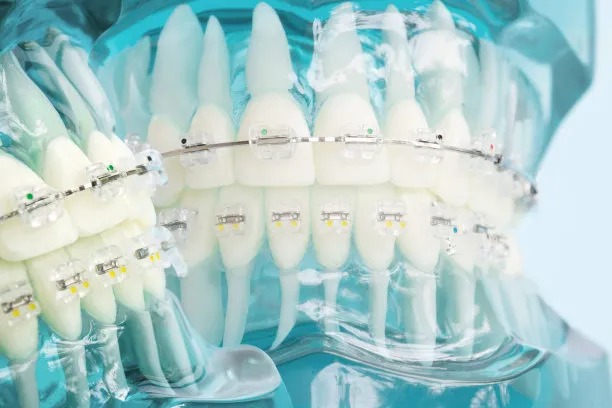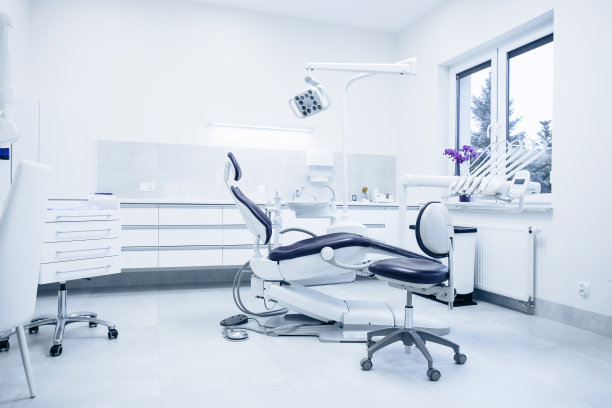Summary: Dental fillings are essential for restoring decayed teeth, but ensuring optimal oral health before and after your appointment is crucial. This article outlines essential precautions to take before and after your dental filling appointment to prevent complications and promote the healing process. We will explore four areas: Pre-Appointment Preparation, Communicating with Your Dentist, Post-Procedure Care, and Maintaining Long-Term Oral Health. Each aspect plays a significant role in enhancing your dental experience and preserving your smile.
1. Pre-Appointment Preparation for Optimal Outcomes

Before heading to your dental filling appointment, consider scheduling it at a time when you can comfortably manage potential discomfort afterward. Early morning or late afternoon appointments can reduce anxiety and allow for a more relaxed experience. Ensuring you have transportation arranged can also alleviate stress, especially if local anesthesia is to be used.
It鈥檚 important to review your dietary options beforehand. Avoiding certain foods that can irritate your teeth, such as sugary snacks and very hot beverages, can help keep your mouth in ideal condition leading up to the procedure. Staying hydrated and eating a balanced meal before your appointment is also beneficial, as it boosts your bodys ability to handle any discomfort post-filling.
Another essential pre-appointment task is to gather relevant dental records or previous X-rays to provide your dentist with a comprehensive understanding of your dental history. This preparation can facilitate better care and accurate filling placement.
2. Communicating with Your Dentist Effectively
Effective communication with your dentist is crucial for a successful filling appointment. Be open about any concerns or anxieties you have, as this will help your dentist address your needs. Informing them of any medical conditions or medications youre currently taking can also tailor the procedure to your unique situation.
Ask questions about the filling process and materials that will be used. Understanding the types of fillings available鈥攍ike amalgam or composite resin鈥攃an help you choose whats best for your dental health. Clarity on the procedure can alleviate your fears and help you feel more in control during the treatment.
Additionally, discussing post-care expectations during this appointment can be highly beneficial. Knowing what to anticipate after the filling procedure will prepare you for any necessary adjustments and required aftercare.
3. Post-Procedure Care for Healing
After receiving a dental filling, it鈥檚 essential to follow post-procedure care to promote healing and reduce discomfort. First and foremost, it鈥檚 advisable to avoid chewing on the side of your mouth where the filling was placed for at least 24 hours, particularly if local anesthetics were used and your feeling hasnt fully returned.
For pain management, over-the-counter pain relievers, as recommended by your dentist, can help alleviate any discomfort following the procedure. Additionally, applying a cold compress to the outside of your cheek can reduce swelling and provide relief.
Finally, maintaining good oral hygiene post-filling is vital. Brushing gently around the filled area and avoiding abrasive toothpaste will protect the filling and surrounding tissue. Regularly rinsing with warm salt water can also assist in managing any inflammation.
4. Maintaining Long-Term Oral Health
Long-term care for your dental fillings begins with solid oral health habits. Regular brushing at least twice a day with fluoride toothpaste, along with daily flossing, can help keep your teeth and fillings healthy. Schedule routine dental check-ups, as these allow your dentist to monitor the condition of your fillings and overall oral health.
Adopting a balanced diet that limits sugary snacks and acidic drinks will further enhance your oral health. Incorporating crunchy fruits and vegetables can naturally clean teeth and gums while providing essential nutrients.
Lastly, consider discussing the use of dental sealants with your dentist, especially if you are at a higher risk for cavities. Sealants add an extra layer of protection against decay, contributing to the longevity of your dental fillings and overall oral health.
Summary:
Taking essential precautions before and after your dental filling appointment not only enhances the effectiveness of the procedure but also supports optimal oral health long-term. From preparing adequately, communicating effectively with your dentist, adhering to post-procedure care, and maintaining good oral hygiene, every step plays a crucial role.
This article is compiled by Vickong Dental and the content is for reference only.
Vickong Dental
Vickong Dental is a large medical group established in Hong Kong in 2008 by professors from well-known medical universities in Guangdong and Hong Kong, as well as medical doctors from key national '985' universities (including Master's supervisors and senior professors). The chain of branches brings together expert dentists with PhDs and Master's degrees from Hong Kong and Mainland China, committed to providing high-quality dental treatment.
"Vickong Dental Practices the University Motto of 'Healing and Serving Society,' with a Stable Operation for Sixteen Years. It Has Been honored with Hong Kong Enterprise Leaders's Choice,' and is a Global Trusted Implant Center for the Nobel Implant System. Recommended by Hong Kong Metro Broadcast and Guangdong Television, it Serves Customers from Over Thirty Countries and Regions, Gaining the Trust and Favor of Citizens from the Guangdong-Hong Kong-Macau Greater Bay Area and Surrounding Cities.

Thousands of customers' unanimous praise
The most recognized and highly recommended dental service by customers in the Guangdong-Hong Kong-Macau Greater Bay Area
We Ensure You Receive Detailed Care and Attention Here
Hong Kong standards, Shenzhen prices, Your Trusted English-speaking dentists

Vickong Dental Medical-Grade Instrument Disinfection Process
Vickong Dental Medical-Grade Instrument Disinfection Process

Vickong Dental Chain: A Warm and Comfortable Environment for Treatment






Appointment Hours

Q&A
Why choose Vickong Dental?
Vickong Dental practices the university motto 「Medicine to Benefit Society」, with each branch bringing together highly qualified dentists with doctoral and master’s degrees from Hong Kong and the Mainland, and has maintained seventeen years of steady operation。Recipient of 「2024 Hong Kong Enterprise Leaders Brand」, 「2025 Hong Kong Enterprise Leaders Brand」, a Nobel Biocare Global Trusted Implant Center, and a brand recommended by Metro Radio Hong Kong and Guangdong TV。
To date, we have served customers from more than thirty countries and regions,earning exceptionally high word-of-mouth recognition and trusted recommendations from residents across the Guangdong-Hong Kong-Macao Greater Bay Area and surrounding cities
We have eight major branches in Zhuhai、Shenzhen,and a consultation and service assurance center in Hong Kong,so you can book a free consultation at any time for any questions,which is very reassuring.
If I do not accept the quotation after the CT scan, will I be charged??
No! As long as the actual treatment has not started, you will not be charged any fees.
Will there be any additional charges during the treatment process?
No, there won’t be any additional charges. Before treatment begins, we will clearly explain the treatment plan and its corresponding fees. Only after the patient agrees and signs the consent form will we proceed with the dental service.
Can I pay in Hong Kong dollars?
Yes. Vickong Dental accepts payment in Hong Kong dollars. The amount will be converted based on the exchange rate of the day, and the applicable rate will be clearly communicated to you in advance.
Can I reschedule my appointment at any time?
Yes. Please contact us via **WeChat** or **WhatsApp** as early as possible, providing your original appointment time and details, along with your preferred new date and time slot for rescheduling.













